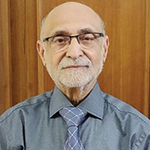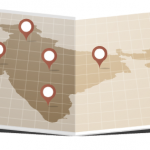
Sarunyu_foto / shutterstock.com
It was a delight to read the comments in the May 2019 issue of The Rheumatologist on a paper by Hirsch and colleagues, discussing how health literacy affects the patient global assessment.1,2 Patient-driven outcome measures (PROs), patient global assessment on a visual analog scale (VAS) or a numeric rating scale (NRS), a segmented numeric version of the VAS, and a patient’s degree of pain on a similar scale are among the core measures used to assess a patient’s disease status at each clinic visit. The authors convincingly demonstrated a close correlation of health literacy with correct assessment of disease outcome using PROs.
We rheumatologists, especially from the Third World, face the issue of health illiteracy possibly much more than our colleagues in other fields of medicine. In view of the importance of the patient’s perspective and several recent papers discussing the issues related to assessing the patient’s global score in rheumatoid arthritis (and in other diseases), I decided to write this short piece on the status of patient global assessment in India.3-5
Rheumatology Care in India
During the past 51 years, I have worked in the Division of Clinical Immunology and Rheumatology in two major medical centers in New Delhi, India. My work includes patient care, teaching and research.
In my clinical work, eliciting the patient global assessment has been challenging, to say the least. I start by asking the internationally recommended phrase—“Considering all the ways arthritis affects you, rate how well you are doing on the following scale?”—and show them the standard numeric scale (0–100) with 21 small circles on a horizontal straight scale. I also try to translate the question into the language used most often by patients attending my clinic—Hindi.
This commonly elicits one of several interesting responses. The most common is “Well, you are the doctor. You tell me how well or not well I am.” Implied in the response is “I am paying you for the clinic visit, so you should tell me this rather than asking me!”
The second most common response is that the patient turns toward an accompanying person (e.g., husband, wife, son, daughter, mother, father, brother) and says, “You answer this question.”
As the doctor, I find it difficult to figure out whether the patient doesn’t understand the question or really does not know how to objectively answer the question. When I insist the patient answer the question, they may respond, “I am better than before.”
I tried to explain to one patient that the human mind is poor at recalling medical history. She insisted, “No, no, I do know how I was earlier.”
Then, I tried a different question, “Do you remember what you had for dinner on the last clinic visit day?”
“How can I remember that?” she promptly replied.
I went back to the 0–100 scale, but using an actual one foot ruler scale. I explained, “This end means No disease/completely well, while the other end means maximum disease/worst pain.”
She looked at the ruler, smiled and said, “Hamaar bachava eka layke line kheenchat hai” (“My son uses it for drawing a line”), and then promptly put her finger on the right end of the ruler—maximum disease (i.e., 100).
I tried to explain this could not be correct because she had walked in the clinic without support, showed no antalgia and showed no discomfort when taking a few steps or on sitting down in the chair. Thus, she cannot have 100% disease.
She countered, “But my left elbow is hurting; therefore, my score is 100.”
I persisted and tried to elicit an average global assessment by giving an example: “On one day I earn 30 rupees, and on the other day only 10 rupees. What is my average earning for a single day?”
By this time, she looked embarrassed and anxious. “Doctor, please do not ask me such difficult questions. I am not much educated to answer tough questions.”
Well, you are the doctor. You tell me how well or not well I am.
I started to get the feeling that if I persisted any more, she might simply walk out and never return.
The issue of the patient global assessment becomes more interesting if the accompanying person happens to be the father-in-law; he fully takes over the proceedings: “I will tell you how she is because she does not do anything and knows nothing!”
Moving the Appointment On
By this time I usually don’t feel like pursuing the issue anymore. I go about examining the patient, painstakingly doing the joint count, which my clinical assistant dutifully enters in the rheumatology-dedicated electronic medical record (EMR) with built-in DAS28, CDAI, SDAI calculator.6
Thankfully, erythrocyte sedimentation rates and C-reactive protein levels are almost always available. I insist patients bring reports of blood counts and other routine parameters carried out within a week of the clinic visit.
I enter a “best guess, free of bias figure” for the patient global assessment and pain VAS score, praying all the time to God to pardon me for this act of forgery.
Most of my patients are doing well and have high regard for me.7 At 80 years old, I am as busy in clinical work as ever.
My own feeling is that with better disease markers (profiling cell types, cytokines, chemokines and all the –omics), a time may come when we shall be able to drop the patient global assessment, eliminating stress for both the patient and the assessor.
 Prof. Anand N. Malaviya, MD, FRCP (Lond.), ACR Master, is a visiting senior consultant rheumatologist at ISIC Superspeciality Hospital, New Delhi, India, and retired head of the Department of Medicine and chief of Clinical Immunology and Rheumatology Services, All India Institute of Medical Sciences, New Delhi.
Prof. Anand N. Malaviya, MD, FRCP (Lond.), ACR Master, is a visiting senior consultant rheumatologist at ISIC Superspeciality Hospital, New Delhi, India, and retired head of the Department of Medicine and chief of Clinical Immunology and Rheumatology Services, All India Institute of Medical Sciences, New Delhi.
References
- Staff. How does health literacy affect the patient global assessment? The Rheumatologist [online]. 2019 May 8.
- Hirsh J, Wood P, Keniston A, et al. Limited health literacy and patient confusion about rheumatoid arthritis patient global assessments and model disease states. Arthritis Care Res (Hoboken). 2019 May;71(5):611–619.
- Ferreira RJO, de Wit M, Henriques M, et al. ‘It can’t be zero!’ Difficulties in completing patient global assessment in rheumatoid arthritis: A mixed methods study. Rheumatology (Oxford). 2020 May 1;59(5):1137–1147.
- Ferreira R, Carvalho PD, Ndosi M, et al. Impact of patient’s global assessment on achieving remission in patients with rheumatoid arthritis: A multinational study using the METEOR database. Arthritis Care Res (Hoboken). 2019 Oct;71(10):1317–1325.
- Pope JE, Michaud K. Is it time to banish composite measures for remission in rheumatoid arthritis? Arthritis Care Res (Hoboken). 2019 Oct;71(1):1300–1303.
- Malaviya AN, Gogia SB. Development, implementation and benefits of a rheumatology-specific electronic medical record application with automated display of outcome measures. Int J Rheumatic Dis. 2010 Oct;13(4):347–160.
- Malaviya AN, Gogia SB. Treatment of rheumatoid arthritis (RA) in India—how and by whom: Results from a speciality clinic—use of low-dose methotrexate (MTX) was inexplicably suboptimal. Clin Rheumatol. 2016 Sep;35(9):2163–2173.


